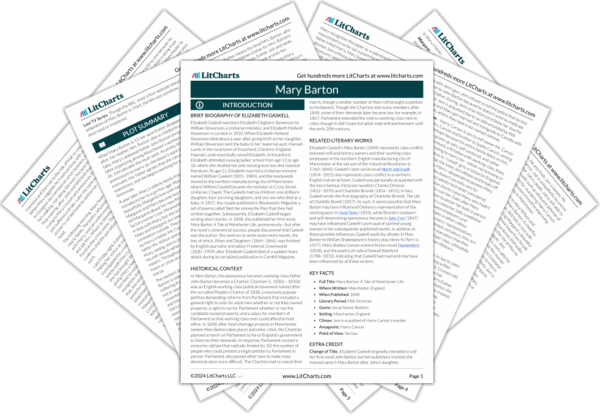In her eagerness to help Mrs. Wilson, Mary persuades the vacillating doctor to excuse her from testifying at Jem’s trial. This incident shows Mary’s practical morality and goodwill toward others, but it may also reveal her legal naivety, as Job worries that Mrs. Wilson’s non-appearance at the trial might hurt Jem’s chances of acquittal.
